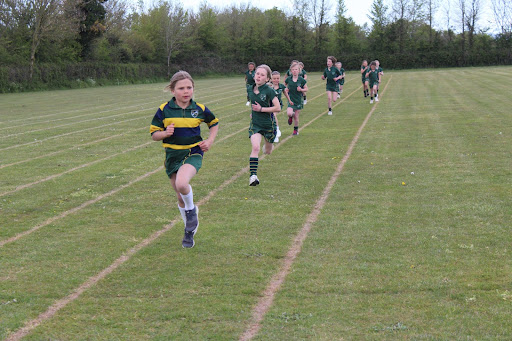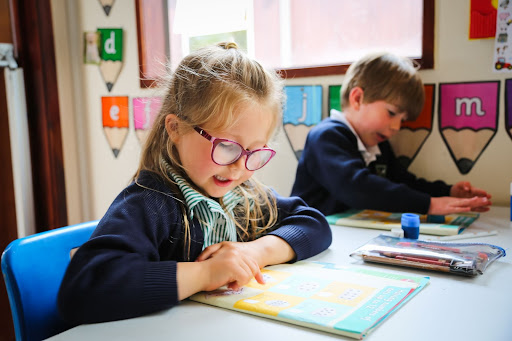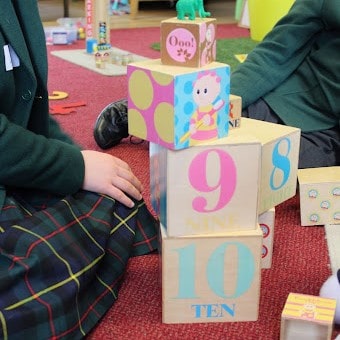Let’s face it, maths isn’t everyone’s favourite subject. Learning and teaching styles can play a vital role in whether your child enjoys learning maths.
It’s a subject that teaches countless skills, so it’s important that your child doesn’t feel too daunted by numbers. Things like problem-solving, quantifying numbers and spotting patterns are all vital skills that are developed when children learn about maths.
While maths can be very useful in day-to-day interactions, it can also enhance critical thinking and logic on a wider scale, particularly in the formative years. Whether your little one recites their multiplication timetables with ease or needs a bit more encouragement, find out how you can boost their confidence and enjoyment of mathematics with our top tips!
Using Maths in Baking
Baking provides many opportunities to engage with maths in a proactive way. From heating up the oven to measuring how many teaspoons of sugar your delicious dessert might need, this activity is sure to keep your child engaged.
What’s more, when your creation is ready, you can encourage your child to practice fractions by dividing it up into equal parts.
Incorporating maths-based exercises into your child’s hobbies can be a fantastic way to nourish creativity and engagement with learning with less pressure on getting the answers correct.
Time-telling Games
Time can be a challenging concept to teach to children. Making sense of the big hand and the little hand on a clock isn’t always easy. Some activities which can help with learning about the time are:
Timetables
Drawing up a timetable to put in a communal area such as the fridge. You can add little counters or stickers for different family members. Having this visual aid, as well as stating aloud, “it’s 6 o’clock, we’re having dinner”, will help to reinforce how time relates to day-to-day activities.
Counting with a Stop-watch
Does your child have a competitive streak? If they love practising for sports day or running races, you can time them using a stop-watch.

Travel Schedules
Read bus, train or flight schedules together. Making sense of these schedules can help your child to become familiar with how these numerical structures work. Even delays can teach valuable lessons as you could count the difference between the scheduled versus the actual departure time.
Playing Board Games
Getting some of your favourite family board games off the shelf can help children to engage with maths in a fun, creative way. Here are some of our favourites that are sure to get you all dusting off those maths skills:
- Monopoly – a family favourite known the world over, this game can help with counting and quantifying money as well as counting dice rolls and moving spaces.
- Qwirkle – a sequence spotting game where the player matches shapes or colours to win points.
- Sum Fun – the numerical counterpart of Scrabble that connects mathematical equations using tiles.
- Magic Maths – this game allows players to make potions using addition, subtraction and multiplication.
- Prime Climb – race to the centre of a colourful board by using the coded counters.
Using Technology
As well as board games, there are a whole host of E-learning resources to get children excited about learning maths. These include:
- Maths on Toast – The family maths charity which uses creative ways to teach maths.
- Maths Zone – A comprehensive website that includes mathematical games and activities for different age groups to work through.
- Family Maths Toolkit – The National Numeracy Agency has put together resources, including activity packs, to inspire children and parents to enjoy learning maths.
When accessing these tools and any other maths-based activity, it’s important to remain patient with your child and encourage them to be patient with themselves. Reassuring a learner that it’s natural to make mistakes and to take some time to find the answer can help to instil confidence and boost a child’s self-esteem.

Coding
Whilst we’re on the topic of technology, coding is a popular way to get children interested in learning about all things mathematical.
Many programmes teach children how to use a basic coding language and use game-based learning to make learning enjoyable. Transferring this tremendously useful and applicable skill to new environments is a win-win for all of the STEM subjects.
Counting Money
Counting money provides a tangible element to increasing financial literacy. As money becomes increasingly digitised, it’s important that children can still grasp the conversions from coins into notes.
Whether you use monopoly money or have a pretend till at home, this can be a fun way to encourage your child to engage with learning maths whilst giving them real-world skills.
Having Positive Conversations About Maths
Be mindful of how you talk about maths. Studies have shown that if parents have higher levels of anxiety surrounding subjects, children are likely to be impacted negatively by this.
Having a growth mindset and challenging our own preconceptions about a topic can help.
A good place to start is to reframe what maths can be; mathematician Paul Lockhart believes that ‘mathematics is an art’ which can be a positive approach to take when talking to your child about maths.

Using Maths Every Day
Our final tip is to integrate maths into everyday activities, so that children never feel dread when they have a maths class coming up. Some suggestions for this include:
- Make shopping lists and encourage your child to count how many items are on them.
- Locate products in the shop with certain measurements (e.g. “can you find the grapes that weigh 200g?”)
- Ask simple maths-based questions that have relevance to everyday life.
- Get counting! Count steps, door numbers or even parking spaces with your child. As this process becomes quicker, you could pick bigger scale tasks such as “how many windows does that house have?”
At St Peter’s Prep, we encourage children to become ambassadors for lifelong learning in all subjects.
Providing opportunities to learn about STEM subjects and other core skills is part of the comprehensive education that pupils at our school receive.
For more information about our independent primary school in Devon, please call Rachel Elliott, Director of Admissions & Marketing, on 01395 280335 or email rachel.elliott@stpetersprepschool.co.uk.










